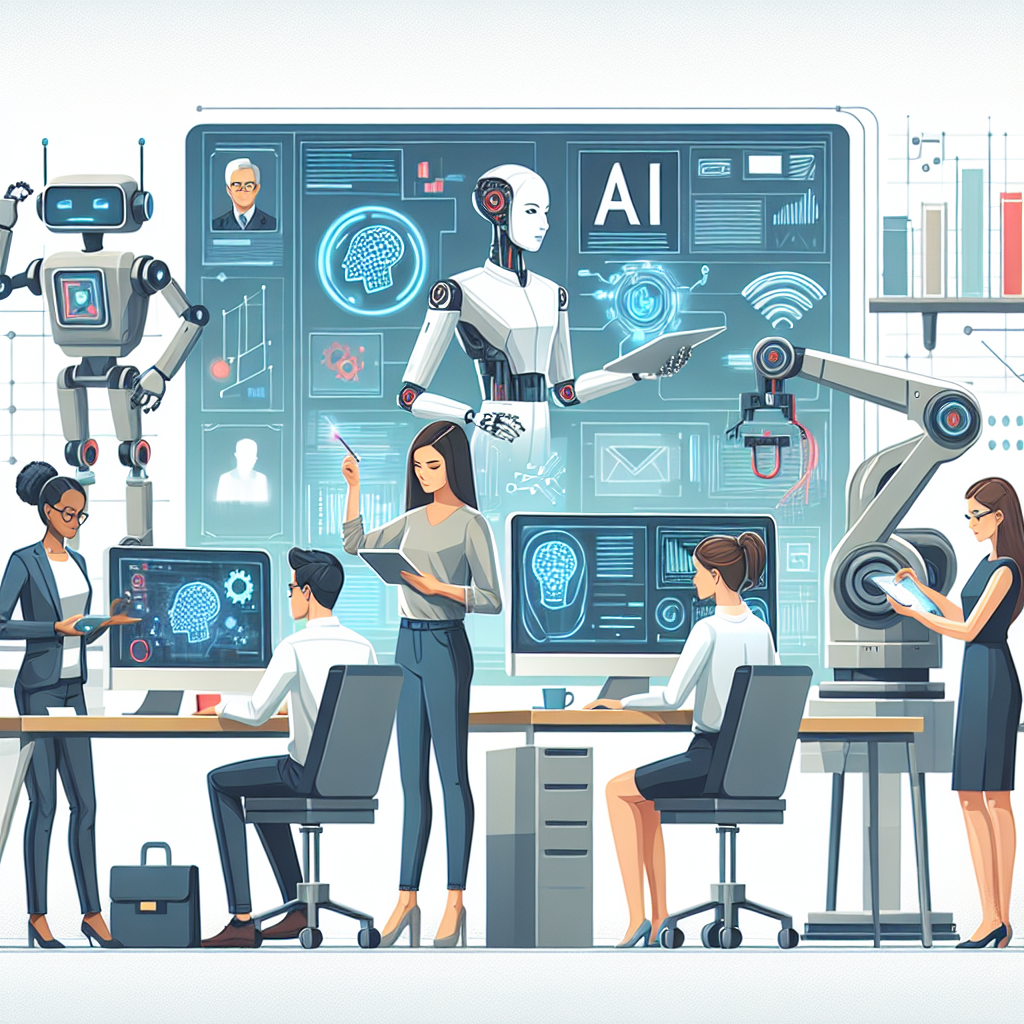The Impact of AI Democratization on Workforce Development
Artificial Intelligence (AI) has been a buzzword in the technology industry for the past decade, with significant advancements being made in machine learning, deep learning, and natural language processing. However, up until recently, AI has largely been the domain of large tech companies and research institutions due to the high costs and expertise required to develop and implement AI solutions.
This has led to concerns about the potential for AI to exacerbate existing inequalities in society, with fears that AI could lead to job displacement and further widen the gap between the haves and have nots. However, recent developments in AI democratization are changing this narrative, making AI more accessible to a wider range of organizations and individuals.
AI democratization refers to the process of making AI technology more accessible and affordable to non-experts, enabling a broader range of organizations and individuals to harness the power of AI for various applications. This trend is driven by advancements in AI tools and platforms, as well as increasing awareness of the potential benefits of AI across industries.
One of the key impacts of AI democratization on workforce development is the potential to create new job opportunities and roles that leverage AI technology. As AI becomes more accessible, organizations of all sizes and industries are exploring ways to integrate AI into their operations, creating a demand for AI experts and professionals who can develop and implement AI solutions.
For example, AI democratization has led to the rise of AI-as-a-service platforms, which allow organizations to access AI tools and services on a pay-as-you-go basis, without the need for significant upfront investment in AI infrastructure. This has democratized access to AI technology, enabling small and medium-sized businesses to leverage AI for tasks such as data analysis, customer service, and marketing.
In addition, AI democratization has also led to the emergence of new roles such as AI trainers and AI ethicists, who are responsible for training AI models, ensuring ethical AI practices, and evaluating the impact of AI on society. These roles require a combination of technical expertise and domain knowledge, creating new opportunities for individuals with diverse backgrounds and skill sets to enter the field of AI.
Furthermore, AI democratization is also driving the need for upskilling and reskilling programs to help workers adapt to the changing labor market. As AI technology becomes more prevalent in the workplace, workers will need to acquire new skills and competencies to remain competitive and relevant in their fields. This includes skills such as data analysis, machine learning, and AI programming, which are becoming increasingly important across industries.
To address this need, organizations and governments are investing in workforce development programs that offer training in AI and related technologies. These programs are designed to help workers acquire the skills needed to thrive in the age of AI, preparing them for the jobs of the future and ensuring a smooth transition to a more AI-driven economy.
FAQs:
Q: What is AI democratization?
A: AI democratization refers to the process of making AI technology more accessible and affordable to non-experts, enabling a broader range of organizations and individuals to harness the power of AI for various applications.
Q: How is AI democratization impacting workforce development?
A: AI democratization is creating new job opportunities and roles that leverage AI technology, driving the need for upskilling and reskilling programs to help workers adapt to the changing labor market.
Q: What are some examples of new job opportunities created by AI democratization?
A: Some examples of new roles created by AI democratization include AI trainers, AI ethicists, and AI developers, who are responsible for training AI models, ensuring ethical AI practices, and developing AI solutions for organizations.
Q: How can workers prepare for the impact of AI democratization on the workforce?
A: Workers can prepare for the impact of AI democratization by acquiring new skills and competencies in areas such as data analysis, machine learning, and AI programming, through upskilling and reskilling programs offered by organizations and governments.
In conclusion, AI democratization is having a significant impact on workforce development, creating new job opportunities and roles that leverage AI technology, as well as driving the need for upskilling and reskilling programs to help workers adapt to the changing labor market. By making AI more accessible and affordable, AI democratization is democratizing access to AI technology and empowering individuals and organizations to harness the power of AI for various applications. As AI continues to evolve and become more prevalent in the workplace, it is essential for workers to acquire the skills needed to thrive in the age of AI and ensure a smooth transition to a more AI-driven economy.

